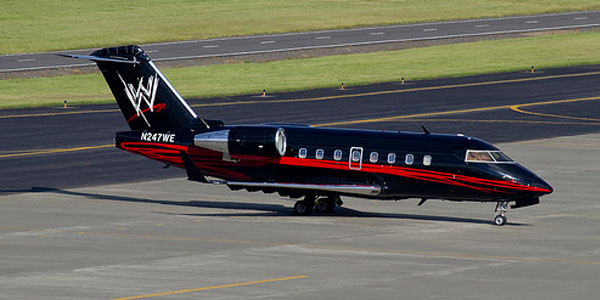2. They Pay For All Non-Air Travel Expenses In The United States And Canada

Continuing section 9.3:
WRESTLER shall bear all costs incurred in connection with his transportation to and from any such Events (except for those transportation costs which are covered by PROMOTER's then current Travel Policy), as well as the costs of food consumed and hotel lodging utilized by WRESTLER in connection with his appearance at such Events. Notwithstanding anything in this Agreement to the contrary, PROMOTER agrees to pay for all airline travel expenses incurred in connection with WRESTLERs performance of his services hereunder for or on behalf of PROMOTER. To that end, PROMOTER agrees to provide WRESTLER with First Class round-trip airfare in connection with the performance of services hereunder on all flights originating and ending within the United States and Canada, and round-trip business international class airfare on all flights in connection with the performance of services hereunder which originate and/or end anywhere outside the United States and Canada.
Essentially, what this means is that when it comes to travel expenses, all WWE pays for is airfare and the group tour buses they use on overseas tours. Wrestlers must pay for rental cars, hotels, and whatever food they can find after the show is over. The road expenses can easily read six figures annually. The big stars will chip in from time to time, paying the whole bill when everyone goes out together, like the trip they make to Kowloon's after after show in Boston, but generally speaking, but that's pretty much the only exception. WCW did pay for hotels and rental cars in many cases, allowing wrestlers with equal pay to take home much more, but WWE never has. From Stevie Ray's 1999 WCW contract that was made public as part of his lawsuit against WCW:

WWE not paying these expenses why Mick Foley was notoriously frugal on the road. When business was down in the mid-1990s, some wrestlers would have weekends where they lost money.
 Continuing section 9.3:
Continuing section 9.3:  WWE not paying these expenses why Mick Foley was notoriously frugal on the road. When business was down in the mid-1990s, some wrestlers would have weekends where they lost money.
WWE not paying these expenses why Mick Foley was notoriously frugal on the road. When business was down in the mid-1990s, some wrestlers would have weekends where they lost money.